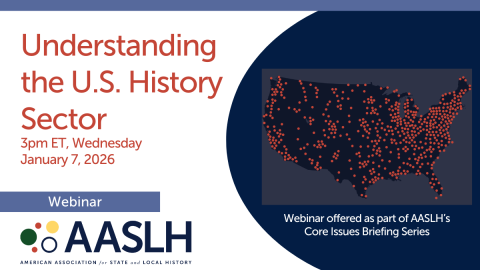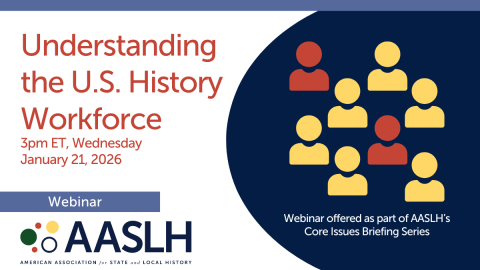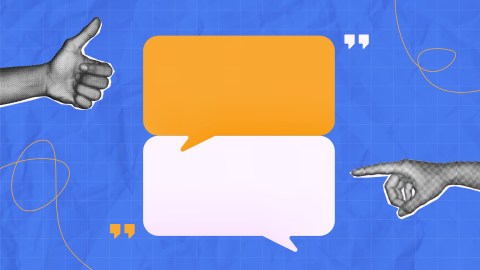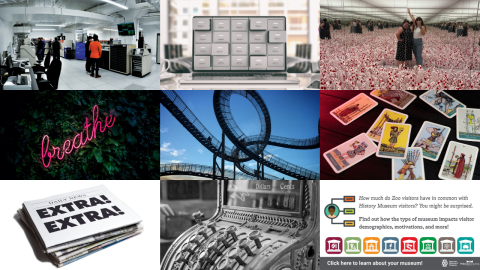The recent CFM posts about museum studies (here and here) have spun off in all sorts of interesting directions, including discussions at New Curator and MJ Writes. People propose that graduate programs should guarantee jobs for graduates, that AAM take a position on salaries (should AAM start a union, folks?), and debate the importance of experience (volunteer work, internships) relative to a degree.
But as a good futurist in training, I am going to leap over these arguments and question the underlying assumption—the continued importance of formal, site-based certification programs in general.
There is widespread dissatisfaction with the U.S. educational system, with criticism coming from both inside and outside the system. Clearly, there is an impetus for change. For a good overview of trends that will shape the future of education see:
- The Map of Future Forces by the KnowledgeWorks Foundation and the Institute for the Future.
- The National Education Association’s scenarios on the future of education
- The Spellings Commission report and ensuing discussion
The challengers to the traditional educational models range from slice and dice educational programs that offer a menu of training in highly targeted, specific skills to students to a host of online experiments. An article by Anya Kamenetz, “How Web-Savvy Edupunks Are Transforming American Higher Education,” is a whirlwind survey of some of the efforts to provide an alternative to the time-honored, debt-ridden college/graduate degree programs, including such organizations as the OpenCourseWare Consortium that provide free, online educational resources.
But education in the virtual world is leaping beyond the provision of online content. Flat World Knowledge also provides volunteer mentors to grade and comment on work, provide certificates of course completion, and experiments with different formats, such as classes with an online role-playing format. Peer2Peer University provides an open community of online study groups. This thoughtful post by Leslie Madsen-Brooks at WestMuse explores the use of social media for continued professional development.
Taken all together, these changes encourage us to take a fresh look at the changing educational landscape. Maybe the question isn’t “should museums hire museum studies graduates?” or “how do we attract a diverse matriculating class to our MS programs?” but “what will education and certification look like in the future?” And how can museums help shape these new options, and contribute content to the proliferation of free or low-cost online resources training the next generation?
So here is my mini-forecast of the future of education (keeping in mind that I am not an expert in educational trends, but maybe this will provoke comments from people who are):
In 2034, 25% of K-12 and 40% of secondary school is delivered through online programs and resources. Learning cadres based on age are a thing of the past, and standardized tests are the touchstone for assessing achievement. Homeschooling has gone mainstream, particularly for teenagers, with informal consortia of families banding together to create learning groups that design curricula and access content from a variety of sources. Classwork takes place both online and dispersed in the community—often at libraries and museums. The attainment of college degrees peaked in 2020 and has steadily declined ever since. In the wake of the mergers and closings of colleges following the economic collapse of 2008, traditional four-year colleges continued to dwindle in number and importance. Well-established, well-endowed private universities continue to thrive but occupy an increasingly elite niche. State colleges have steadily diminished in funding (and enrollment.) Community colleges, for-profit educational colleges, virtual colleges and skill- and discipline-specific certification programs fill the breach. The last decade has seen an increasing number of students mainstream into the workforce in their late teens and early twenties, rounding out their training throughout their life through continued education from a variety of sources.
So, what do you think?
If you agree this may be true, why?
If you disagree, and what is your forecast?
In this scenario, how would training in museums studies best be delivered?
And, most importantly, do you see this as a positive development (in which case how can we help it come to pass), or negative (in which case, how can we head it off)?









Elizabeth,
The world is changing so fast. Most museum professionals I've been talking with feel it's impossible to "keep up." As a consultant, I've been searching for ways to help not only small museums with few resources, but also museum professionals who may have recently been downsized (or affected by downsizing). I've been searching for a way to help these individuals as well as those small museums who might not even be able to afford one conference a year, so I've gone in the direction of online training. You can read more in this blog post why I created this resource: http://bit.ly/qmQ5b
The tech tutorials ($5 each) are a super-affordable way to get coached and trained on new technologies, all with museum professionals in mind http://bit.ly/90Ver.
The on-demand classes allow people to expand their knowledge base. People can try a free one here: http://bit.ly/Q6AFq
I'm looking forward to my webinar series, as I'll be bringing in experts from various disciplines to discuss topics relating to visitor experience (my focus). Each webinar will be recorded and then made available as an inexpensive download ($35 live/$10 recorded).
I hope in this way to provide these resources to people who need them, supporting the work of museums in their communities.
Best,
Stephanie Weaver
http://www.experienceology.com/classes
Beth et. al.,
It's interesting to look back at AAM conference proceedings from the early 1930s — the Great Depression era — and see that the exact same discussions about training (short-term vs. an advanced degree from a university, an institution that was rapidly changing course, just as it is today) and museum work were occuring, in equally colorful (for the day) language.
Maybe you could post one such discussion — where a professor from Yale pleas for intellectual rigor and less "molly-coddling" of museum workers — from a Museum News article of 1931!
Economic downturns seem to be the times that we pose these questions and then make great leaps. Where my concern lies is that we don't throw out the baby with the bathwater — a tendancy on the part of the American psyche — and don't encourage a short-term painless fix, instead of the thoughtfulness and long-term maturation that develops expertise and wisdom.
Marjorie Schwarzer